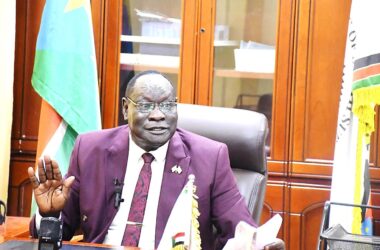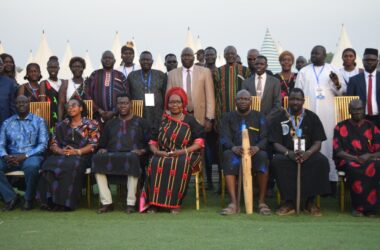
By Lodu William Odiya
As part of the efforts to prevent and control malaria disease, the Ministry of Health, with support from the World Health Organisation (WHO), UNICEF has launched malaria vaccine to protect children.
In a joint statement issued to the media yesterday, the vaccine would increase access and tackle the rising number of deaths caused by malaria.
The statement emphasized that South Sudan is scaling up the provision of malaria vaccines to the remaining 52 counties with a target of reaching 324,571 children aged 5 to 23 months.
It also stated that Malaria continues to be a major health challenge in South Sudan, with 5.5 million cases and over 4,000 deaths annually.
“Access to treatment, insecticide-treated bed nets (ITNs), and vaccines is low, with the 2023 malaria indicator survey showing a rise in malaria prevalence among children aged 6–59 months from 32% in 2017 to 52.6% in 2023 placing a heavy burden on South Sudan’s fragile healthcare system” statement noted.
It underscored the vital initiative, spearheaded by the Ministry of Health and backed by WHO, UNICEF, and other partners, is a direct response to the alarming increase of malaria cases and related deaths, especially among children under five.
The statement stressed that the malaria vaccine rollout, which targeted over 265,000 children in the first phase, had achieved partial success regarding first-dose coverage but faces significant challenges in ensuring completion of the full four-dose schedule.
“This steep drop out in the first round of vaccinations and the increasing malaria-related deaths are concerning and highlight the urgent need for additional measures, including improved service delivery, defaulter tracking, community engagement, and follow-up mechanisms.” Said Honourable Sarah Cleto Rial, Minister of Health.
“We extend our gratitude to the Ministry of Health and all partners for their commitment and sustained efforts to combating malaria, especially with the scale up of malaria vaccines in this second phase” she said.
It also highlighted that the scale up of this vaccine across the country is a critical step in protecting our communities by reducing deaths.
it also stated that the vaccination is an additional tool that complements our existing prevention interventions like bed nets and antimalarial drugs.
“The launch of the second phase of the R21 malaria vaccine marks a pivotal step forward in our shared mission to protect South Sudan’s children from the devastating risk of malaria. We are not just delivering a vaccine; we are giving hope.
Every child deserves a childhood free from malaria. The R21 vaccine will shield more children from sickness and death, allowing them to survive, thrive, and shape the future of this nation,” said Noala Skinner, UNICEF Representative to South Sudan.
The malaria vaccine has primary doses administered at 5, 6 and 7 months of age with a fourth dose provided at 18 months which coincides with the second dose of measles vaccine which the country is introducing in August 2025.
Children from 5 months to 23 months were target for the malaria vaccines and parents should take all children within that age bracket for the vaccine.
The implementation of the malaria vaccine scale up is an addition to many other strategies the MOH and its partners are implementing to reduce malaria cases and death in South Sudan.



